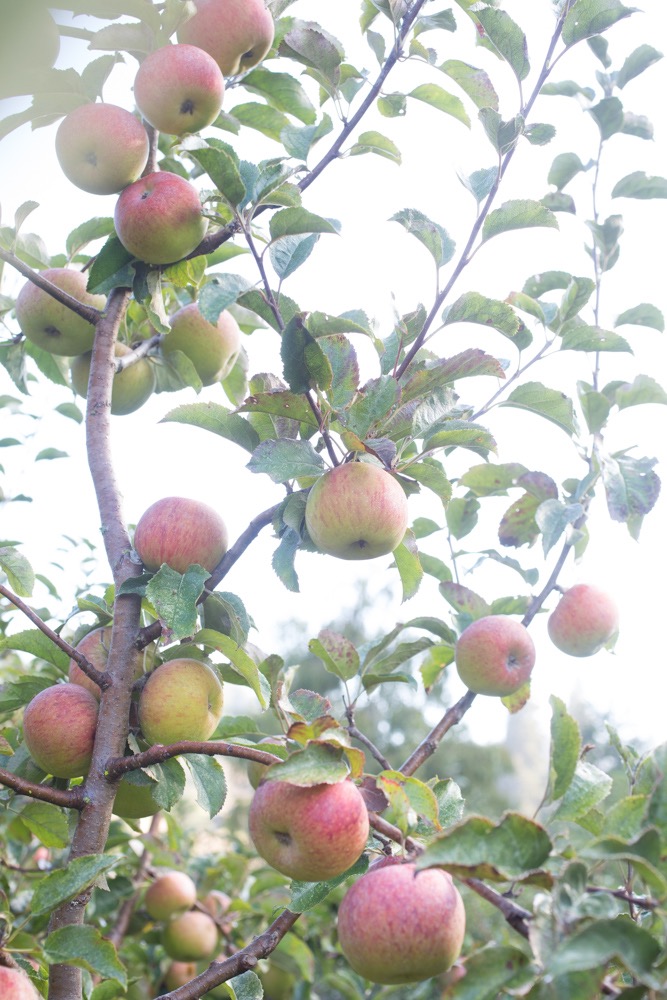Epicenter Orchard

We are not currently selling fruit at the Santa Cruz Westside Farmers’ Market on Saturdays.
We will be back at the farmers’ market in the fall, unless our cherry crop comes through for us and forces us to make an appearance in July.
https://santacruzfarmersmarket.org/markets/westside/
We are at the end of our growing season, but still have a pretty good representation of the great Lady Williams apple. They continue to improve in storage until some time in February, longer in refrigeration. If you want to buy a 20 pound box, contact us through this website.
About our operation
Our orchard in Larkin Valley was planted in 2005, as an outgrowth of a runaway hobby/obsession with apples that hasn’t quite run its course. The land was a wet meadow-turned orchard in the 20s, became a horse pasture in the 60s, reverting to wet meadow in the late 80s. It lies along the bottom of a narrow north-south running valley, bordered on both sides by walls of redwood and oak. Up watershed a rangy tangle of willows divides it from hundreds of acres of rolling wild land.
Ours is a little one and a half acre plot on the edge of a huge block of fairly pristine native habitat that supports a lot of wildlife. We see cougars, coyotes, foxes, bobcats, deer, wild turkeys, eagles, cooper’s hawks, red tailed and red-shouldered hawks, 3 kinds of owl, and lots of gophers. We can trap the gophers, and fence out the deer, but the coyotes are smart. They help with the gophers, but love pears a little too much. A battery of perches and boxes turn the bluebirds, swallows, chickadees and raptors into charismatic farm laborers.
Deep distrust of synthetic chemicals leads me to avoid them on my farm and elsewhere, but we do use OMRI listed pheromone ties against codling moth. No synthetic fertilizers or pesticides, no sulphur, copper, neem, or dormant oil, as all these agents kill unintended, innocent organisms. We do use mountains of composted tree chips to conserve water and suppress weeds, and composted animal manure for fertility. We don’t plow or disc between our rows, using instead a walk-behind high-weed mower to maintain a year-round mixed grass/weed/flower cover instead. What this means is we spend a lot of time crawling our rows, hand weeding to keep the bindweed from swallowing our trees.
Getting down to the apples, we try to grow European style, high flavor types that nobody’s ever heard of unless maybe they happen to be from Europe, or had occasion to haunt their farmers markets. These differ from Gala, Fuji, Cosmic Crisp, or what’s commonly available, and could never be confused with a sweetened jicama. They’re endowed with acidity, astringency, and aromatics (flavor) to enhance their high sugar, making for an intense, complex, high-impact eating experience.
Not everyone shares our preferences, but luckily, there are many places to buy normal type apples. After 25 years of running public apple tastings, we’ve seen how people respond to high-flavored apples, and feel relieved and delighted to finally be able to provide the kind of fruit we love, directly to the public. We hope to attract an enthusiastic following of avid apple lovers, who will enable our behavior.
Since farming is about enormous amounts of boring, repetitive, and hard work, if we didn’t love our fruits, it would feel like a complete waste of time.
